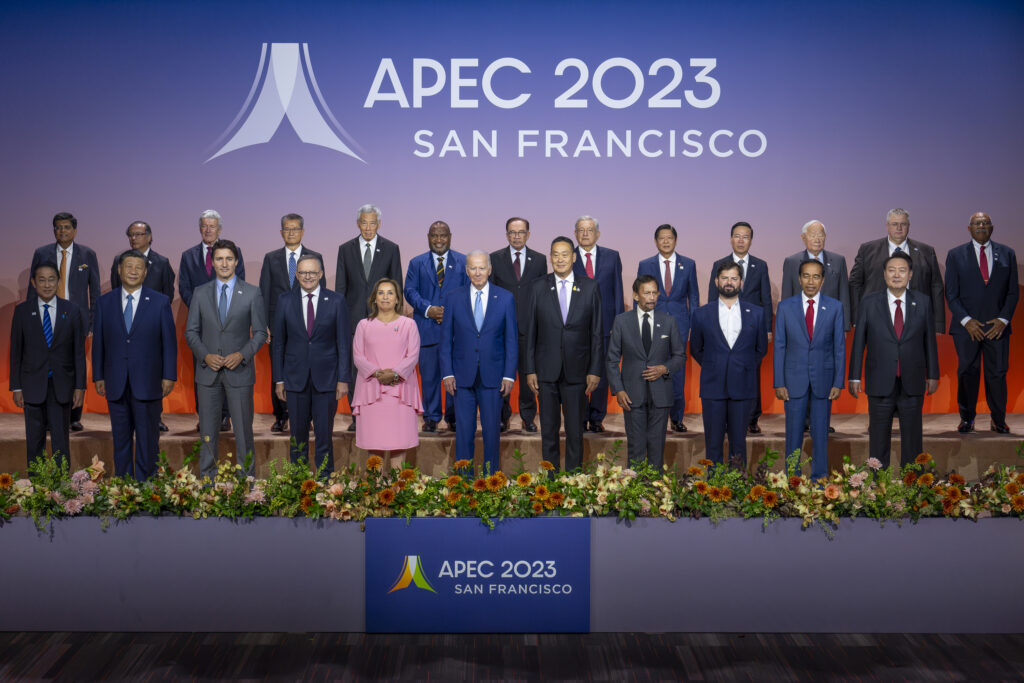The Peninsula
The Deliverables from Yoon’s First APEC Summit

Last week’s Asia-Pacific Economic Cooperation (APEC) summit in San Francisco concluded where discussions among Asia-Pacific leaders heavily focused on trade, investment and security across the region. Taking place on the heels of seventh round negotiations for the Indo-Pacific Economic Framework (IPEF) the week prior, the summit marked President Yoon Suk Yeol’s first attendance of an APEC meeting and the latest of a multitude of Yoon visits to the United States this year.
The multiweek gathering of both events was consequential for a number of reasons. First, U.S. companies pledged roughly $1.2 billion in investments as part of Yoon’s visit with GM, DuPont, IMC and Ecolab set to expand production for their vehicle, semiconductor, and chemical facilities in Korea. Similarly, as an outcome of ministerial level negotiations, three out of four pillars of the Indo-Pacific Economic Framework for Prosperity (IPEF) agreement were concluded, where Pillar I was scuttled due to U.S. domestic opposition. Accordingly, on Wednesday the U.S. Department of Commerce released a joint statement from IPEF countries announcing the signing of the IPEF Supply Chain Agreement. As each pillar is considered a separate agreement, negotiations can occur at different paces. The signing of the supply chain pillar as well as conclusions on the clean economy and fair economy pillars have no bearing on the negotiations for the yet to be concluded trade pillar, which will have to revise terms to labor, environmental and digital standards beginning some time in 2024.
President Yoon’s attendance at the summit also resulted in sideline meetings with Japan’s Prime Minister Fumio Kishida, which allowed the chance for them to advance economic security and technology commitments similar to the ones made at the Camp David Trilateral in August. The first Yoon-Kishida meeting, which occurred Thursday, covered increased people-to-people exchanges, cooperation on evacuations from the Middle East, and shared concerns over North Korean security provocations. It was then followed by a brief Biden-Yoon-Kishida trilateral grouping where they posed for a photo. On Friday, Yoon again met with Kishida for talks moderated by Condoleezza Rice at Stanford University where the two made commitments to clean energy and quantum computing and Prime Minister Kishida hinted at announcing a joint supply network with Korea covering hydrogen and ammonia, developments which will likely be meted out at upcoming Korea-Japan diplomatic meetings.
This year’s APEC summit also provided President Yoon a chance to advance shared trade and security agenda items through his keynote address at the CEO summit. Addressing a room of multinational business leaders, he lauded APEC as a ‘protector of the multilateral trading system’ while reiterating his proposal from his UN General Assembly speech in September for countries to form a Carbon-Free alliance and highlighted Korea’s commitment to forming digital standards — referencing Korea’s ‘Digital Bill of Rights’ as an example blueprint for a global norm. The in-person format allowed for impromptu discussions with business leaders such as Apple CEO Tim Cook, who approached Yoon for sideline talks where they discussed supply chain cooperation and expanding partnerships with Korean companies, further enriching the summit’s outcomes for Yoon.
Lastly, on Thursday President Yoon briefly met with China’s Xi Jinping. It was the first time they had met since their sideline meeting during the G20 summit in Bali in 2022 and they had about three minutes of communication. Although no official bilateral summit was produced, the resulting tête-à-tête between the two provided momentum for better Korea-China relations, especially as Korea, China and Japan have been moving closer towards a trilateral of their own. Accordingly, a ministerial trilateral summit between the three was announced for Busan on November 26.
All that being said, the commitments made at APEC are a reminder of the successes of the international trading system and the importance of continued dialogues. They reflect the values that countries place on their economic relations with each other amidst growing global tensions and conflicts abroad. These values are taken to heart by Yoon. At the Annual World Economic Forum meeting in Davos in 2023, President Yoon Suk Yeol remarked that free trade is a “global public good that can never be forsaken.” It is therefore no surprise that it remains a defining theme of Korea’s economic diplomacy with its partners and was the driver of Korean bilateral engagement at APEC. As the future of the global free trade system is continuously shaped by war, protectionism, and supply chain weaponization, meetings like the ones at the APEC summit are a testament to the role continued dialogues have in shaping an increasingly interconnected world.
Tom Ramage is an Economic Policy Analyst at the Korea Economic Institute of America. The views expressed here are the author’s alone.
Photo by The White House on Wikimedia Commons.
